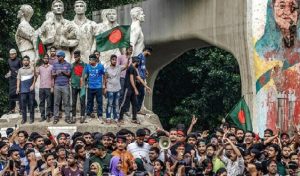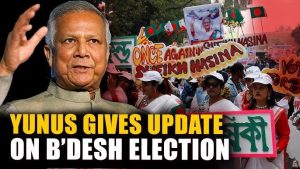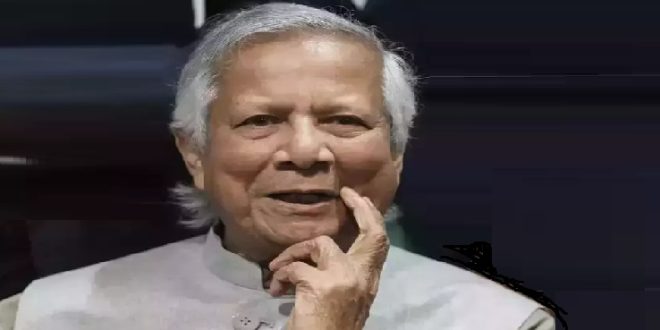18-12-2024
DHAKA: Elections in Bangladesh could be held by the end of 2025, the head of the country’s interim government said on Monday, provided that electoral reforms are carried out first.
Bangladesh has been ruled by an interim government led by its only Nobel laureate Muhammad Yunus since August, when then Prime Minister Sheikh Hasina resigned and fled to India amid mass protests.
 “If there is political consensus and the voter list is prepared accurately with only minor reforms, it may be possible to hold elections by the end of 2025,” Yunus said in a televised speech.
“If there is political consensus and the voter list is prepared accurately with only minor reforms, it may be possible to hold elections by the end of 2025,” Yunus said in a televised speech.
Bangladesh’s army chief General Waker-uz-Zaman, whose refusal to support Hasina during the deadly student protests led to her departure, told Reuters in September that democracy should be restored within 12 to 18 months.
In his address, delivered on the 53rd anniversary of Bangladesh winning independence from Pakistan following a nine-month war, Yunus said elections would only be possible after electoral reforms.
“If additional reforms are needed, and taking into account national consensus, it may take at least another six months,” the 84-year-old added.
Opposition parties including the Bangladesh Nationalist Party, one of two dominant parties in the country alongside the Awami League, have called for elections to be held as soon as possible.
Meanwhile, Bangladesh’s army chief vowed to back the country’s interim government “come what may” to help it complete key reforms after the ouster of Prime Minister Sheikh Hasina, so that elections could be held within the next 18 months. General Waker-uz-Zaman and his troops stood aside in early August amid raging student-led protests against Hasina, sealing the fate of the veteran politician who resigned after 15 years in power and fled to neighboring India.
In a rare media interview, Zaman told Reuters at his office on Monday that the interim administration led by Nobel laureate Muhammad Yunus had his full support and outlined a pathway to rid the military of political influence.
 “I will stand beside him. Come what may. So that he can accomplish his mission,” Zaman, bespectacled and dressed in military fatigues, said of Yunus.
“I will stand beside him. Come what may. So that he can accomplish his mission,” Zaman, bespectacled and dressed in military fatigues, said of Yunus.
Yunus has promised essential reforms in the judiciary, police and financial institutions, paving the way for free and fair elections in the country of 170 million people.
Following the reforms, Zaman said a transition to democracy should be made between a year and a year-and-a-half, but underlined the need for patience.
“If you ask me, then I will say that should be the time frame by which we should enter into a democratic process,” he said.
Bangladesh’s main two political parties, Hasina’s Awami League and its bitter rival Bangladesh Nationalist Party, had both previously called for elections to be held within three months of the interim government taking office in August.
The BNP’s secretary general, Mirza Fakhrul Islam Alamgir, told media on Tuesday that the party would like elections to be held at the earliest opportunity.
“I am not going to give any particular time period but I think the sooner the better,” he said. “We are ready for elections. Even if they are held tomorrow, we are ready.”
Hasina’s son and adviser Sajeeb Wazed did not immediately respond to a request for comment.
Zaman said he meets Yunus every week and the two have “very good relations”, with the military supporting the government’s efforts to stabilize the country after a period of turmoil. (Int’l Monitoring Desk)
 Pressmediaofindia
Pressmediaofindia




